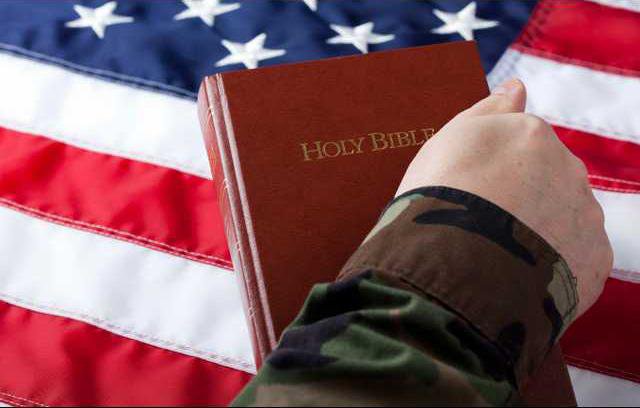Atheists and non-believers are targeting military installations over religious accommodations and statements, advocacy groups and media sources report.
The confrontations center around whether or not an airman can refuse to say "So help me God" when re-enlisting, and whether hotels run by the Navy should place copies of the Bible in guest rooms. On both fronts, non-believers object.
According to the American Humanist Association, an airman stationed at Creech Air Force Base near Indian Springs, Nevada, was refused re-enlistment when he asked to remove the phrase "So help me God" from the enlistment form. Although a 1961 U.S. Supreme Court ruling rejected a Maryland requirement for such a similar oath by public officials, the Air Force, citing a 2013 revision of the U.S. Code, is holding fast to the requirement.
“Reciting ‘So help me God’ in the re-enlistment and commissioning oaths is a statutory requirement under Title 10 USC 502,” Air Force spokeswoman Rose Richeson told the Air Force Times, an independent newspaper. She said the service branch can only change the wording if Congress changes the statute.
Before the 2013 change, service members could opt out of using those words. Monica Miller, an attorney with the AHA's Appignani Humanist Legal Center in Washington told the Deseret News she was unable to determine who in Congress pushed the change through.
“The government cannot compel a nonbeliever to take an oath that affirms the existence of a supreme being,” Miller told the Air Force Times. “Numerous cases affirm that atheists have the right to omit theistic language from enlistment or re-enlistment contracts.”
In a letter to Air Force officials, Miller wrote "that if the service member is not given the opportunity to re-enlist, the commanding officers may be sued," according to an AHA news release.
In contrast to the Air Force situation, officials at the Department of the Navy are backpedaling after a March 2014 complaint from the Wisconsin-based Freedom from Religion Foundation, over the presence of scriptures in some rooms at Navy Lodge installations, which are motels for active and retired Naval personnel and their families. According to MilitaryTimes.com, there are 40 such Navy Lodges located in 16 U.S. states and five countries overseas.
After the FFRF complaint, advocates of religious liberty called on the Navy to restore the Bibles, many of which had been placed by Gideons International, a outreach group based in Nashville, Tennessee, at no cost to the military.
"There is no constitutional reason to worry about a policy along these lines. The mere presence of a Gideon Bible in a hotel room does not constitute a form of messaging from the proprietor to the guest," wrote members of the Restore Military Religious Freedom Coalition in a letter to Defense secretary Chuck Hagel and Navy Secretary Ray Mabus.
The group, chaired by retired U.S. Army Lt.-General Jerry Boykin, asserted, "the Navy should direct NEXCOM to allow Gideon Bibles in all facilities for which the Gideons are willing to make Bible donations. Furthermore, this should be a DOD-wide policy — not one merely put in place for Navy facilities."
Email: mkellner@deseretnews.com
Twitter: @Mark_Kellner
Religious liberty questions dog military practices





